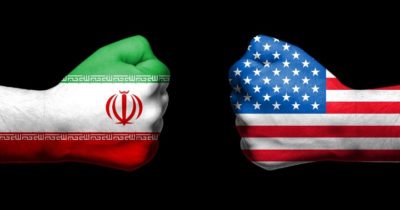By BLG Attorneys, Vicky Wu, and Megan Mohler
The United States recently withdrew from the Joint Comprehensive Plan of Action (JCPOA), also known as the Iran Nuclear Deal.
The JCPOA is a multilateral agreement reached between Iran, the United States, the United Kingdom, France, China, Russia, and Germany. The agreement outlined specifics regarding how Iran must limit their nuclear power activity to make sure their programs do not result in the creation of nuclear weapons. The JCPOA lifted a slew of economic sanctions that had been placed against Iran, such as sanctions relating to Iran’s export of petrochemical products; sanctions related to Iran’s auto industry; sanctions related to gold and other precious metals; sanctions related to civil aviation; sanctions related to Iran’s export of crude oil; and facilitation of humanitarian and certain other transactions related to agriculture and medicine. These economic and political sanctions had previously been imposed for terrorism concerns, human rights abuses, and concerns related to Iran’s nuclear-arms program.
Although the United States has withdrawn from the JCPOA, the other members to the agreement have made it known that they have every intention of upholding the deal. Meanwhile, the United States is planning on restoring economic sanctions against Iran now that the deal has lifted.
Effects of U.S. Withdrawal
Below is a comprehensive list of U.S. sanctions that will be re-imposed after the 90-day wind down period and authorizations ending August 6, 2018:
- Sanctions on the purchase or acquisition of U.S. dollar bank notes by the Government of Iran;
- Sanctions on Iran’s trade in gold or precious metals;
- Sanctions on the direct or indirect sale, supply, or transfer to or from Iran of graphite, raw, or semi-finished metals such as aluminum and steel, coal, and software for integrating industrial processes;
- Sanctions on significant transactions related to the purchase or sale of Iranian rials, or the maintenance of significant funds or accounts outside the territory of Iran denominated in the Iranian rial;
- Sanctions on the purchase, subscription to, or facilitation of the issuance of Iranian sovereign debt; and
- Sanctions on Iran’s automotive sector;
- The importation into the United States of Iranian-origin carpets and foodstuffs and certain related financial transactions pursuant to general licenses under the Iranian Transactions and Sanctions Regulations, 31 C.F.R. part 560 (ITSR);
- Activities undertaken pursuant to specific licenses issued in connection with the Statement of Licensing Policy for Activities Related to the Export or Re-export to Iran of Commercial Passenger Aircraft and Related Parts and Services (JCPOA SLP); and
- Activities undertaken pursuant to General License I relating to contingent contracts for activities eligible for authorization under the JCPOA SLP.
A comprehensive list of U.S. sanctions that will be re-imposed after the 180-day wind down period and authorizations ending November 4, 2018:
- Sanctions on Iran’s port operators, and shipping and shipbuilding sectors, including on the Islamic Republic of Iran Shipping Lines (IRISL), South Shipping Line Iran, or their affiliates;
- Sanctions on petroleum-related transactions with, among others, the National Iranian Oil Company (NIOC), Naftiran Intertrade Company (NICO), and National Iranian Tanker Company (NITC), including the purchase of petroleum, petroleum products, or petrochemical products from Iran;
- Sanctions on transactions by foreign financial institutions with the Central Bank of Iran and designated Iranian financial institutions under Section 1245 of the National Defense Authorization Act for Fiscal Year 2012 (NDAA);
- Sanctions on the provision of specialized financial messaging services to the Central Bank of Iran and Iranian financial institutions described in Section 104(c)(2)(E)(ii) of the Comprehensive Iran Sanctions and Divestment Act of 2010 (CISADA);
- Sanctions on the provision of underwriting services, insurance, or reinsurance;
- Sanctions on Iran’s energy sector;
- S. owned or -controlled foreign entities’ activities with the Government of Iran or persons subject to the jurisdiction of the Government of Iran that were previously authorized pursuant to General License H; and
- Sanctions that applied to persons removed from the List of Specially Designated Nationals and Blocked Persons (SDN List) and/or other lists maintained by the U.S. government on January 16, 2016.
Source: Frequently Asked Questions Regarding the Re-Imposition of Sanctions Pursuant to the May 8, 2018 National Security Presidential Memorandum Relating to the Joint Comprehensive Plan of Action (JCPOA), www.treasury.gov.
The biggest problem global entities are facing now is the conflict of laws resulting from the U.S. withdrawal. U.S.-owned or U.S.-controlled foreign subsidiaries that comply with local legislation could be in conflict with U.S. laws, as the Office of Foreign Assets Control (OFAC) could begin an enforcement action against them after the wind-down period. OFAC has specified that some licenses under the JCPOA will be given a 90-day wind down, ending Aug. 6, 2018. The remaining licenses revoked by the U.S. withdrawal will be given a 180-day wind down period, ending Nov. 4, 2018.
Proceed with Caution
If businesses fail to end their transactions with Iran beyond Nov. 4, OFAC may begin enforcement actions (but efforts will be taken into consideration). It is also important to note that new business may be started and ended with Iran during these wind down periods, but OFAC is discouraging this practice. The European signatories to the JCPOA have taken measures to block the imminent U.S. sanctions by re-instating a statute that would block the U.S. sanctions from reaching European companies that otherwise would have been subject to the sanctions.
Some European signatories to the JCPOA have pointed out that the United Nations Security Council is the source of the binding legal framework for the resolutions of the U.S. versus other signatories dispute. By dispute, we mean the U.S.’s wanton withdrawal without apparent breach of the agreement. It is currently unknown whether the U.N. Security Council will find a violation.
More information about the Iran Sanctions can be found here.



























